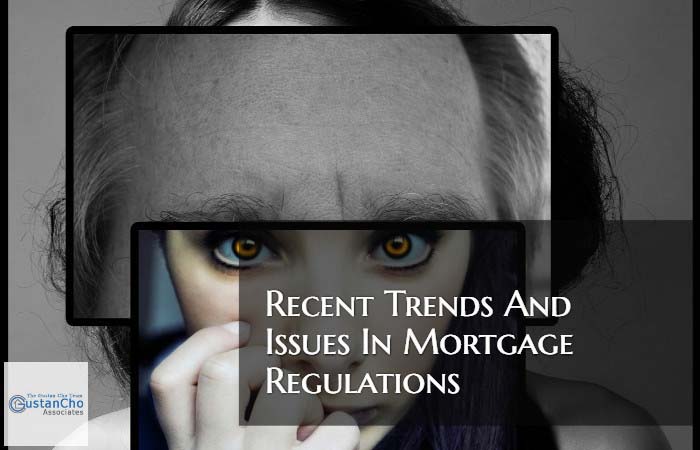This guide will cover the recent trends and issues in mortgage regulations for homebuyers and homeowners. We now have an update on recent trends and issues in mortgage regulations. Recent Trends And Issues In Mortgage Regulations for RESPA and HUD are ongoing. The implementation of the Consumer Financial Protection Bureau to be the enforcement agency of mortgage lenders and loan officers shook up the mortgage industry, says John Strange of Gustan Cho Associates:
The CFPB, which stands for Consumer Financial Protection Bureau, was set to implement the recent trend and issues in mortgage regulations and the changes. As an organization, the Consumer Financial Protection Bureau is not required to obtain any legislative approval before making those changes set forth by the Dodd-Frank Mortgage Act.
The only requirement the Consumer Financial Protection Bureau has to fulfill is to fill out a two-page form and send it to them within 60 days of the policy change being supposed to take effect. The Consumer Financial Protection Bureau missed the deadline. The Consumer Financial Protection Bureau is an agency whose responsibility it is to oversee a 2 trillion dollar-a-year industry, and can’t seem to fill out a two-page form in time. This article will discuss and cover Recent Trends And Issues In Mortgage Regulations.
Recent Trends And Issues In Mortgage Regulations On Home Building Starts
Recent trends and issues in mortgage regulations have not helped the real estate and mortgage markets during times of chaos in the housing markets. Recent trends and issues in mortgage regulations have not helped consumers. Politicians who are clueless in mortgage lending are creating more regulations that are hurting consumers. Alex Carlucci shares his thoughts on the recent trends and issues in mortgage regulations:
Homebuilding starts, depending on where you live, showing signs of growth and life and promising future growth. The resilience of the economy to create can and seems to surpass any obstacle that comes before them.
Some say this is due to banks opening up commercial lending to builders through construction loans and lines of credit. Others say it is the looser credit standards(use this term loosely) banks have lending to individual borrowers for home loans. As construction costs, which include labor and materials, as well as permits, all go up, the price of these homes will have to trend upward for margins to be maintained.
FDIC Banks Versus State Licensed Mortgage Lenders
Other obvious politicians are capitalizing and getting bribed with no concern for consumers. Why are banks and credit unions exempt from mortgage licensing laws? Mortgage bankers and brokers must get licensed in every state to originate mortgage loans. Mortgage bankers and brokers spend tens of thousands of dollars getting their company, branch, and loan officers licensed in every state they want to do business but banks and credit unions do not:
To do business in any state, mortgage bankers and mortgage brokers need to have their company licensed, the branch licensed, and loan officers licensed in every state they want to originate loans. This cost tens of thousands of dollars for licensing fees, surety bonds, education requirements, and renewals every year. Banks and credit unions are exempt from licensing.
Mortgage loan originators working for mortgage brokers or bankers must be licensed in every state they want to originate mortgage loans. However, loan officers at an FDIC bank or credit union do not have to get licensed. Loan officers working at banks or credit unions do not have to take the national NMLS exam. Why is that? So without any experience or education, anyone can become a loan officer at a bank or credit union.
Recent Trends On Regulations On Rates And Prices
There is a concern among real estate and mortgage industry professionals. Politics have come into play. Why is it mortgage bankers do not have to disclose their lender comp on the closing disclosure and mortgage brokers do. This is obviously a concern and the integrity of the mortgage industry. If you want to make a law, then make laws that applies to everyone.
Changes in Mortgage Regulations To Make a Positive Impact On Consumers
Homeowners can find an attorney to charge on the back end. This would be extremely beneficial to homeowners to consider their services. Loving their family and wanting the best for them should not require homeowners to unload their pocketbooks to some municipality that spends before they save.









